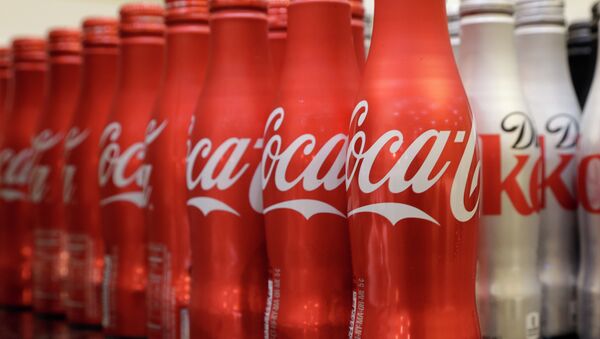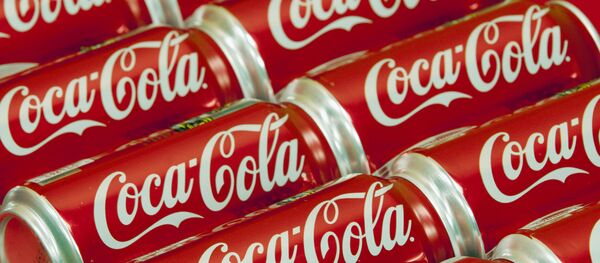Israel's Chief Rabbinate has ruled that Coca-Cola imported from Eastern Europe is not kosher, a ruling that led some companies to suspect that their rivals struck an agreement with the government institution.
According to Haaretz newspaper, The Central Bottling Company, manufacturer and distributor of soft drinks and official supplier of Coca-Cola in Israel, experienced no competition from other companies for a long time. However, since the introduction of reform known as parallel imports, several companies started selling Coca-Cola in Israel and their prices significantly differed from their mighty rival. They sold the famous drink at a much lower price.
However, the Chief Rabbinate has not renewed kashrut certification for companies, which import cola drinks from Eastern Europe for this year. The examination conducted by Coca-Cola executives, the Rabbinate and organizations that grant kashrut certificates found that some ingredients used in Coca-Cola concentrate were not kosher.
"An examination conducted by the kashrut unit found that ingredients without a kashrut certificate were being used. For that reason the importer was not given a kashrut certificate for the product", the Rabbinate said in a statement.
The Central Bottling Company has denied allegations it influenced the institution's decision. "Central Bottling Co. does not deal with issues relating to parallel imports. Needless to say, the body authorized to address issues on kosher products is the Chief Rabbinate of Israel", it said in a statement.
However, Eliran Ben-Shlush, whose company imports Coca-Cola from Eastern Europe, said the timing of the decision raises questions.
"For the last four years. I have been importing to Israel almost all of Coca-Cola's products from Eastern Europe – Coca-Cola, Fanta, Sprite and beer. I import 35 containers a month. Each one contains 2,600 six-packs of 1.5-litre bottles – 91,000 bottles a month and about 1 million a year. Until a few months ago everything went smoothly, then suddenly OU and Heksher Rav Landa tell the Rabbinate that the concentrate for the products I import isn't under [kashrut] supervision", he told the Haaretz newspaper.
The Chief Rabbinate oversees many aspects of life in Israel with its jurisdiction spreading from marriages and burials to holy sites, educational institutions and kosher laws and kashrut certification.
Not having a kashrut certificate doesn't mean that the company won't be able to sell its products, but many Israelis won't buy it due to ethical reasons or won't have access to these products as most supermarket chains, restaurants and institutions sell kosher products.
That was the case with Eliran Ben-Shlush, whose company does business with restaurants and grocery stores. Ben-Shlush said the Rabbinate's decision would deter imports of Coca-Cola from other countries.
"If you make the claim that Coca-Cola isn't kosher anywhere but the US, South Africa and Canada, we won't be able to import Coca-Cola from anywhere else", he said.
The Central Bottling Company was recently fined by Israel's antitrust authorities when it turned out that the company threatened customers that sold imported Coca-Cola products. The government investigation revealed that managers were instructed to stop sales of the fizzy drink to customers, who also did business with unofficial Coca-Cola importers. The company also prohibited customers from using refrigerator cases to stock their rival's products.
Some companies claim that the Chief Rabbinate made the procedure to receive kashrut certificates too complicated. According to the institution's own figures out of 52 applications for kashrut, only ten are approved. Companies claim that private agencies granting kashrut certificates block parallel imports because they want to protect official importers from competition.





